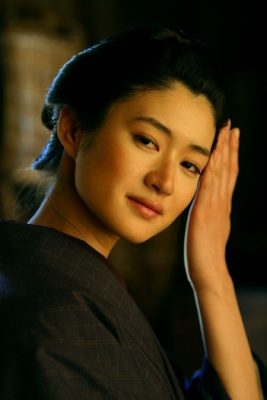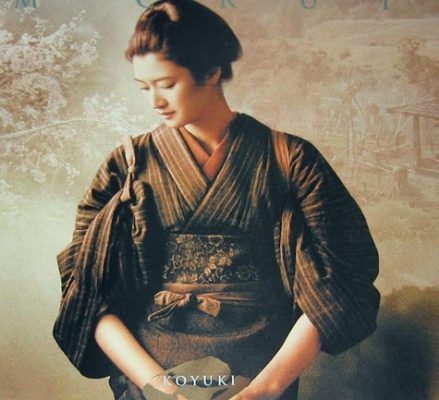Uncategorized
LOVE SONG FOR THE PRIZE WINNER
ANOTHER STORY – IN THE VEIL
Does revisiting past lives help with a subject’s transformation in the present life? Let’s explore together.
This is not the second part of the hypnosis session about the “Eastern Tea Blossom,” but rather the experience of a completely different subject. However, they both asked the same question, and their past lives seem like pieces of a larger puzzle, all sharing a very Japanese color. Therefore, I decided to share this story as a continuation.
Japan, probably around the 17th or 18th century, not too ancient.
The story begins with the scene of a traditional wooden house in Japan. The house is small and very simple, almost devoid of furniture. The wooden beams and columns are dark and shiny, but it seems they are not dark because of the wood, but because they are covered with soot. A girl is doing laundry behind the house. It’s not exactly a rural area, but the house seems to be on the outskirts of a bustling town. Behind the house is a green bamboo grove, with the sound of water trickling. She looks up and sees the blue sky blending with the green of the trees, hearing the birds sing, and she feels a deep sense of peace. It seems this is something she does regularly. Although it takes effort, she doesn’t feel tired; instead, she enjoys the moment and the space. Her hair is tied up like other Japanese women, and her clothes are dark and simple, typical of a working-class family. Though her face is not clearly visible, she exudes a very pure and innocent aura, and she is someone very simple, not calculating or thinking too much. Occasionally, she carries a basket to the town to buy something. Despite sensing that the streets are crowded and noisy, amusingly, the image that appears in her eyes is only the sky and the leaves, as if when she goes out, she only looks up at the sky and pays no attention to the world around her.

Her husband was a swordsman. His hair was tied high, and although it wasn’t clear how it was tied, his forehead was very broad and prominent. He wore dark clothes and carried a sword. He worked at something that kept him away from home frequently. To her, he was a talented and charismatic man, although she couldn’t understand why their family was so poor, because a skilled swordsman usually had a better life than the peasants. But she didn’t care at all about this. It seemed that her husband was a very upright man, only accepting payment from his master and never engaging in anything greedy. She wasn’t at all concerned about their poverty. Her life was entirely centered around maintaining the household, even though there was almost nothing in the house—cleaning, washing, and cooking. Every day was the same, yet she was always cheerful and found joy in these simple tasks, never complaining. If you could imagine how a traditional Japanese woman cares for her husband, she did exactly that. She genuinely and joyfully cared for him in every way, doing things meticulously, as if it was her natural duty, with peace in her heart. To her, her husband was everything.
One image that, when I heard it, deeply moved me: They were so poor that when someone gave them a beautiful Mochi cake, they would share it until they had to cut it in half so they both could enjoy it. Yet, they smiled joyfully. (Japanese traditional cakes are small and pretty.) They lived in peace like that in their simple home, without children. Until one day, when they were still young and hadn’t reached middle age, she was found holding her husband, crying in agony, as he seemed to have died from an injury. To her, he was everything. She too passed away shortly after, overcome with sorrow. When she thought about her life, she regretted how short their time together had been, while they had always dreamed of being together until old age. She had no desire for life without him by her side.

When asked about the meaning of that life, the answer was very interesting. It was that one can truly feel peace and renewal while doing simple, repetitive tasks and living a simple life. Although she loved her husband deeply and took care of him with such natural affection, she also loved and enjoyed the domestic chores she did—not out of obligation, but because she found joy in them.
Returning to the subject in her current life, it turns out she doesn’t enjoy domestic work very much because she dislikes the monotony and repetition. She doesn’t like spending time on things she considers “too small and mundane” because she feels that life is boring that way. She was very surprised by what she saw and said, “Oh, I didn’t expect it, it’s so peaceful, and just like this, family life is so joyful!”
A while later, when we met again, she whispered, “Now, even if I had to scrub the toilet all day, I would still enjoy it and do it with joy.”
I would like to share this life experience without any comment, so that each of us can feel the message that resonates with us.
With much light and love!
Please follow the first part of the Love Songs for Beauties series here.
